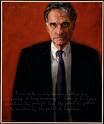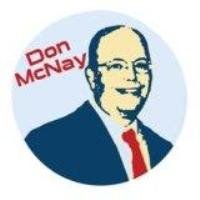"Listen to your heart, there's nothing else you can do".
-Roxette
 It's impossible to forget the first time I met Cincinnati restaurant owner Jeff Ruby. I was about 12 years old when my father took me to meet him at the Fort Mitchell (Kentucky) Holiday Inn, where Jeff was manager. As we pulled up to the hotel, we saw a man furiously running across the parking lot with Ruby chasing behind.
It's impossible to forget the first time I met Cincinnati restaurant owner Jeff Ruby. I was about 12 years old when my father took me to meet him at the Fort Mitchell (Kentucky) Holiday Inn, where Jeff was manager. As we pulled up to the hotel, we saw a man furiously running across the parking lot with Ruby chasing behind.Jeff came in later to dine with us. The man had robbed the front desk, and Ruby had been trying to catch him. Dad asked Jeff if the man had had a gun. When Ruby said yes, Dad asked, "Jeff, what were you going to do if you had caught him?"
It was one of the few times in life that Jeff did not have a quick response.
The incident illustrates why Ruby has been successful. Jeff was about 23 years old and had just graduated from Cornell. He didn't own the hotel, and it wasn't his money. He put his life on the line chasing the robber.
There was no questioning Jeff's guts and determination. It was the same inner drive that would spur him a decade later to create some of the Cincinnati area's most successful restaurants.
 Jeff and Dad were close, and I heard hundreds of times about how Jeff started his first restaurant, The Precinct. As Dad told it, Jeff was managing some Holiday Inns and had little money. In order to become an entrepreneur, he sold his car for $5,000 and showed the money to bank lenders as proof of savings. He lined up celebrity investors and started a fine dining restaurant on the wrong side of town.
Jeff and Dad were close, and I heard hundreds of times about how Jeff started his first restaurant, The Precinct. As Dad told it, Jeff was managing some Holiday Inns and had little money. In order to become an entrepreneur, he sold his car for $5,000 and showed the money to bank lenders as proof of savings. He lined up celebrity investors and started a fine dining restaurant on the wrong side of town.It became the hottest restaurant in Cincinnati. It had first-rate food, and all the big stars went there. His next restaurant, the Waterfront, used the same formula, only in more dramatic fashion. Jeff now has several restaurants, and his empire is growing.
I have not seen Jeff since he served as a pallbearer at my father's funeral, but I have followed Jeff's career through the media. It is not hard to do. Jeff made national headlines in May when he threw O.J. Simpson out of his Louisville restaurant. As Angie Fenton noted in a Louisville Courier-Journal profile, Jeff has been making headlines for many years.
Jeff became a celebrity in his own right and lives the lifestyle to the hilt.
I was reading the Courier-Journal story at the same time that I was emailing with a friend.
My friend is at a fork in the road of life. She has the talent to make it big in her profession, but career success could mean sacrificing her family life and other interests.
It is a tough, life-changing decision. If she jumps off the career ladder, it will be tough to get back on. If she stays on her career track, she will miss out on other things.
It is a choice that each individual has to make for themselves. Some people are happy working all the time. Some crave a balanced lifestyle.
Most people want it all, but getting it all is a hard trick to pull off.
Jeff was going to chase his career at all costs. Although he was formerly married (and now divorced) with three children, his first love has always been his career. It is his sole-mindedness that makes Jeff Ruby, Jeff Ruby.
A guy who chases an armed hotel robber across a parking lot has a fierceness of determination that few possess.
Jeff's "in your face" ambition and high lifestyle rub some the wrong way, but Jeff Ruby has lived life the way he has wanted to. As Verbal Kent said in the movie The Usual Suspects, a man can't change who he is.
Jeff is a high roller with a fierce work ethic. Jeff is not looking forward to retiring and spending time in his garden. He is someone determined to build an empire.
If you want to compete with him, you need to work as hard as he does. A guy who chases hotel robbers and who survived a nightclub fire that killed 165 others is not going to be scared by business competitors.
Jeff is a guy who listens to his heart and instincts.
Even if that means giving O.J. Simpson a boot out the door.
Link to article by Angie Fenton in Courier Journal:
http://www.courier-journal.com/apps/pbcs.dll/article?AID=/20070701/FEATURES/70630007/
The following are the results from my last poll:
Do you have life insurance other than insurance offered by your employer?
72.4% said yes
27.6% said no
Do you think state lotteries should be outlawed?
60.7% said yes
39.3% said no
This week there are two poll questions:
1. Was Jeff Ruby correct in asking OJ Simpson to leave his restaurant?
2. Do you agree with President Bush's decision to commute the prison sentence for Scooter Libby?
To vote in this week's poll follow the link below. The poll will be on the left hand side of the web page.
Weekly Poll
Short Note from Don
This was an interesting item passed along by Bill Bartelman at the Paducah Sun. Bill is a highly esteemed political reporter and has been on Comment on Kentucky with me.
John Edwards to Kentucky?
Don McNay is Chairman of the Board for McNay Settlement Group in Richmond, Ky. You can write to him at don@donmcnay.com and read other things he has written at http://www.donmcnay.com/. His award-winning column is syndicated throughout over 200 newspapers.

























